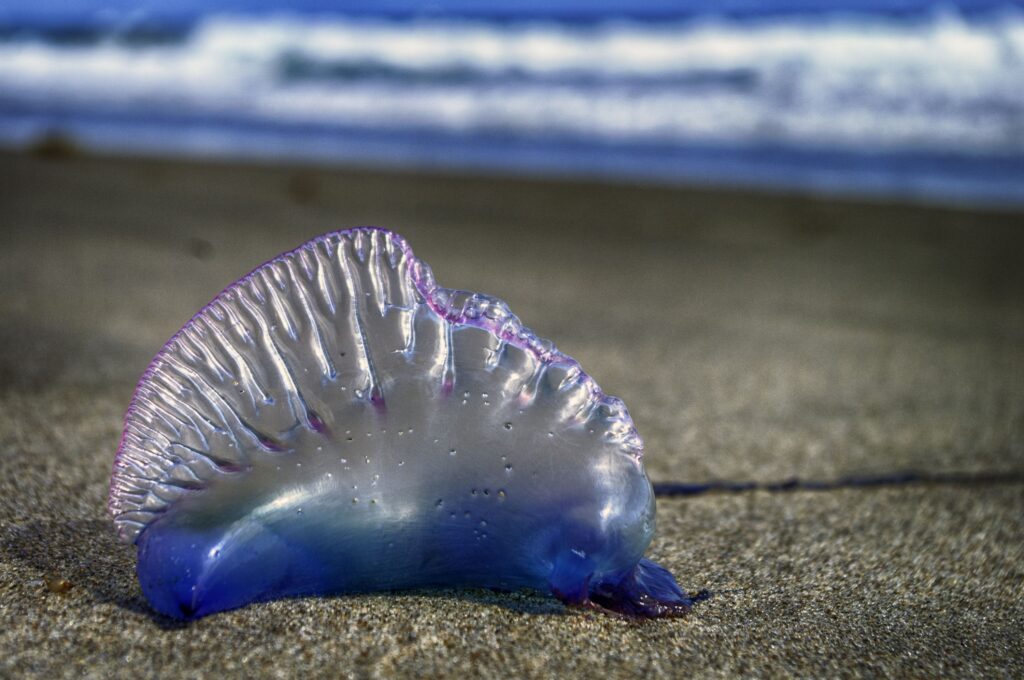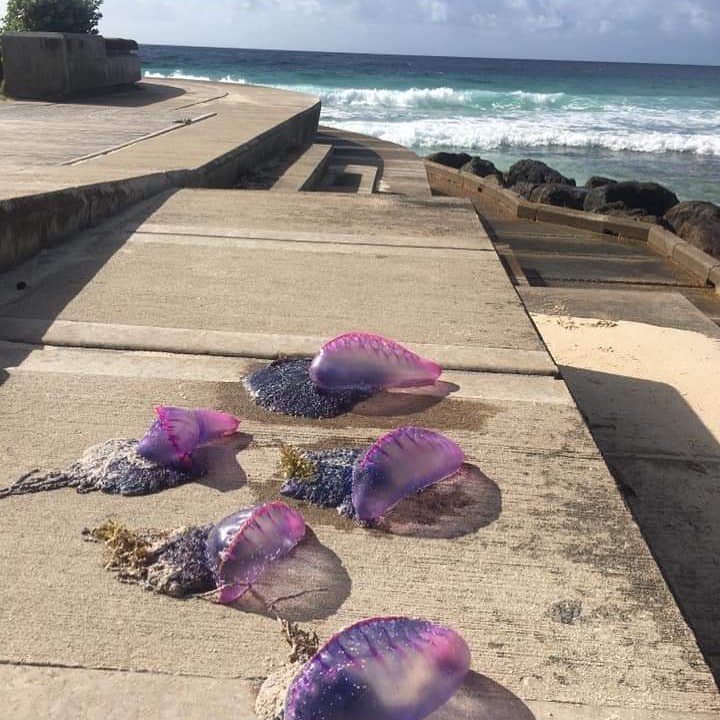

The Government of Barbados is strongly advising against swimming along the island’s south coast on Friday (February 12), amid a smack of Portuguese Man-of-War jellyfish that have been observed in the area.
In its advisory, the National Conservation Commission (NCC) warned against beach-related activities as the creature delivers an excruciating sting to unsuspected swimmers, causing welts on exposed skin.
“Please refrain from going into the water on the south coast of the island. Entering the waters in this area will expose you to the possibility of being stung by the Portuguese Man-of-War jellyfish,”

If one is stung by the Portuguese Man-of-War, the NCC recommends removing the venomous tentacles and washing the affected area with copious seawater.
“Do not rub the area with sand. Use heat or cold for pain management. If you experience any difficulty breathing, immediately seek medical attention,” the NCC explained.
Man-of-Wars, also known as ‘floating terror’, are common across the Atlantic and Indian oceans. Not an actual ‘jellyfish’ by its true nature, the animals are covered in venom-filled nematocysts used to paralyse and kill fish and other small creatures.
For humans, a man-of-war sting is excruciatingly painful, but rarely deadly. The creature must be avoided at an cost, as even beached or dead man-of-wars washed up on shore can deliver a sting.







Comments